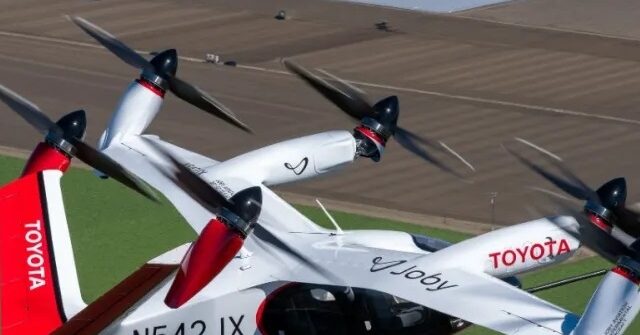Toyota has made a significant commitment to the future of urban transportation by investing an additional $500 million into Joby Aviation, a pioneering electric air taxi developer based in California. This latest funding round elevates Toyota’s total investment in Joby to approximately $894 million since it first backed the startup with $394 million in 2020. The primary aim of this new influx of capital is to facilitate Joby’s completion of the Type 2 certification process with the Federal Aviation Administration (FAA) and to support the commercial production efforts of its innovative electric vertical takeoff and landing (eVTOL) aircraft. According to TechCrunch, this strategic move reflects Toyota’s firm belief in the transformative potential of electric air taxis in reshaping urban travel, enabling rapid transport between densely packed urban landscapes.
Founded in 2009 by JoeBen Bevirt, Joby Aviation has dedicated over a decade to the development of its eVTOL aircraft, aimed at establishing a viable commercial air taxi service in metropolitan regions. Currently, Joby is advancing through the fourth stage of the five-stage FAA type certification process, which is critical for ensuring the safety and regulatory compliance of its aircraft. The company anticipates launching its commercial service in 2025, marking a significant milestone in the future of urban mobility. Toyota’s substantial investment plays a crucial role in not only accelerating this timeline but also enhancing the technological and infrastructural aspects necessary for a successful launch.
Besides financial backing, Toyota has also contributed its extensive expertise in manufacturing and production processes to Joby since the inception of their partnership in 2019. Engineers from Toyota have actively collaborated with Joby’s team, sharing valuable insights derived from the renowned Toyota Production System, which encompasses various facets such as planning, manufacturing techniques, and tooling design. This collaboration culminated in a long-term agreement in 2023, wherein Toyota committed to supplying essential powertrain and actuation components for Joby’s aircraft. Such contributions are instrumental in ensuring the aircraft meets high standards of efficiency and reliability, bolstering Joby’s prospects for a successful commercial rollout.
Joby Aviation has gained notable traction in recent years within the emerging eVTOL sector. The company enhanced its portfolio in 2020 by acquiring Uber’s air taxi division, Elevate, in a complex deal that also saw a $75 million investment from Uber. This acquisition not only expanded Joby’s operational capabilities but also positioned it as a prominent player in the burgeoning air taxi market. The following year, Joby announced its plans to become a publicly traded entity by merging with Reinvent Technology Partners, a special purpose acquisition company (SPAC) led by prominent entrepreneurs Reid Hoffman and Mark Pincus, both of whom bring substantial experience and resources to the venture.
Reflecting on the collaborative journey with Toyota, JoeBen Bevirt, the CEO of Joby Aviation, expressed immense gratitude for the ongoing support from the automobile giant. He highlighted that this latest investment is a testament to the nearly seven years of partnership between the two companies. Bevirt emphasized the importance of the knowledge and support exchanged throughout their collaboration, crediting Toyota’s input as a pivotal factor in Joby’s progress and success. As both companies look ahead, they are keen to deepen their relationship and further refine their shared vision of revolutionizing air travel, tapping into the growing demand for environmentally sustainable and efficient urban transportation solutions.
In summary, Toyota’s substantial investment in Joby Aviation signifies a bold move towards integrating advanced air mobility into urban transportation systems. With its sights set on a future where electrically powered air taxis could be commonplace in cities, both Toyota and Joby are actively working to overcome regulatory and production challenges. The continuous collaboration between these two innovators showcases the potential of electric air taxis to not only provide rapid transit options in congested urban environments but also contribute to broader goals of sustainability and enhanced quality of life in metropolitan areas. As they march toward a planned commercial launch in 2025, the success of this partnership could set a foundational precedent for the future of urban mobility, potentially reshaping how people navigate cityscapes and leading to a transformative shift in the transportation paradigm.

